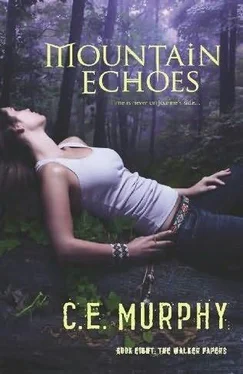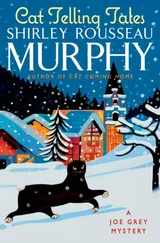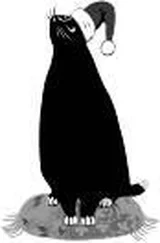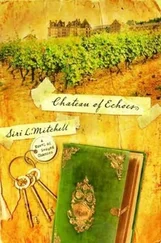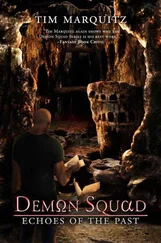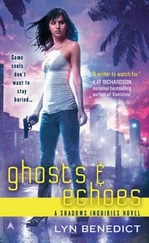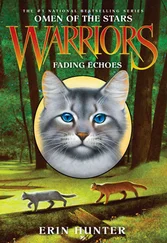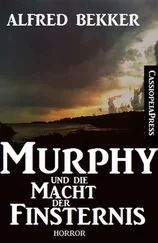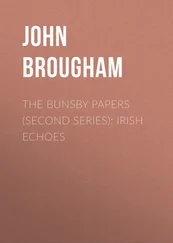But he didn’t. His walking-stick spirit animal sat on his shoulder, its face hidden behind long thin arms, as if the anguish twisting my father’s features hurt it just as badly. “You have to See, Joanne,” my now-father said in a thick voice. “You have to understand.”
“I don’t want to see!”
“Don’t.” Morrison sounded dangerous. “Don’t do this to her, Joseph.”
Somehow that gave me the strength to look, even though my father said nothing. I reached for Morrison’s hand, crushing his fingers with mine, and steeled myself to look, just once, at the babies.
My whole life I’d had the idea they’d only had enough strength for one. That Ayita had given up her strength for Aidan so that at least one of them would live. I Saw now, for the first time, how incredibly right I had been. The babies, born just minutes apart, already lying so close together, shared more than the strength of their bodies. They shared the strength of their souls, as well, Ayita’s danci="-l, borng, laughter-filled soul merging and melding with Aidan’s more serious, contemplative personality. Her yellows and pinks wound around his blues and greens, the colors brightening and burgeoning until the single surviving child’s aura burned almost white, all the time.
Two-spirited. No wonder Aidan had so much raw power. Two-spirited souls, people who carried both the masculine and the feminine within them, were sacred to most Native Americans, the Cherokee included. They were respected and believed to have a closer connection to the spirit world than most, making them natural shamans and guides.
And Aidan was literally two-spirited. Like my friend Billy, he actually shared his body with his sister’s spirit, but there was one huge difference. Billy’s sister, Caroline, had died when she was eight, a developed personality of her own already. She’d remained with Billy for decades because of their close bond, and that had affected him, but it wasn’t the same as being born from the same womb, together for every moment of their brief existences, and given unto one another in death as in life. Aidan and Ayita’s spirits were melded from birth, incomplete without one another. Aidan’s power was boundless, with Ayita’s spirit a part of his.
And it was his only chance against the Executioner.
I knew it in my gut, inside the sickness that still boiled within me. I turned away, wishing I could throw up. I wasn’t one for Seeing the future, but Renee, on my shoulder like the walking stick on Dad’s shoulder, showed me something that was, to her, so close in time to right now that it was all the same. Now and then were so close together, from an unchanging insect’s viewpoint, that there was no particular difference in Seeing what lay in the children’s future. Maybe Dad could have saved Ayita, but it would have been at the cost of both their lives, when the Master came for them. And the Master, Raven Mocker, Kolona Ayeliski, was coming for them.
There’d been some question about it, with me. Maybe Mom had hidden me well enough. Maybe keeping me out of the traditional training had been enough to slip me under the radar. But the walking stick had shown Dad what lay in Aidan’s future. What lay in Ayita’s future, if they both lived.
Death had lain in their future, if they both lived. They only stood a chance together, as one, two-spirited.
Ayita Walkingstick had only lived a few minutes, but she was the bravest person I had ever met.
Empty, drained and exhausted, I said, “Take us home,” to Renee, and she did.
Thursday, March 30, 12:12 p.m.
The sky was unbearably bright when we stepped back into our own time. Petite was where she’d been, sitting quietly under a thin film of dust. The Impala was gone, with no recent tread marks to say when. I was glad I’d taken out full insurance on the thing, and kind of wondered why Petite was still there—and undamaged—if the Impala was missing. I unlocked her doors and sat down in the driver’s seat to turn the radio on and find out what day it was.
Thursday, according to the DJ. That made no sense. Morrison and I had gone into the mountains on Saturday. We’d lost most of a week.
They were not lost, Renee said. The days passed as you ran the ancient forests.
Of course they had. We’d overnighted in the valley with the isolated tribe, then it had taken us three days to get to the Ohio. I slumped in Petite’s front seat, wrung out and wrhey ha with no idea at all of where I should start. Morrison leaned in the open door, concerned. “You okay, Walker?”
“I’m really not. I’m really, really not.” I closed my eyes, and after a moment Morrison closed the door gently and went to talk to my dad. I heard the explanation without letting myself listen to the words, and all but felt Morrison’s sorrow roll toward me. I still had afterimages burned into the backs of my eyes, things I hadn’t let myself look at, in the hospital. Doctors. My fifteen-year-old self, stone-faced to keep anybody from suspecting I was screaming inside. I had never let my grief and rage and helplessness go the way I’d just done while in Morrison’s arms. Eventually it would probably be cathartic, perhaps finally allowing wounds that were scabbed over to properly heal. Right now I was just exhausted and fragile, prepared to shatter again if anything hit me wrong.
I leaned forward and touched the bottom edge of Petite’s windshield. It was whole, unmarked—I never risked dings turning into cracks—and the world beyond it was slightly hazy from the thin film of dust. Other than that, though, perfect. I reached for the image that had risen from within me the day my shamanic powers had awakened: the idea that Petite’s windshield reflected the state of my soul. In my mental image, there was a massive hole punched through the windshield, spiderwebs and long cracks radiating out from it. Over the past year the cracks had begun sealing up, the spiderweb receding, glass fusing back together. Recently it had become more whole than broken, but the puncture wound was still there.
Its edges, though, were maybe a little softer than they’d been before. The spiderweb had closed up around it until the entire fracture was only about the size of my spread hand, instead of spreading from one side of the windshield to the other. I didn’t think the damage would ever be completely fixed. Eventually it might just be a warped spot, though, just a wobble in the windshield where resin had been poured in and sealed to the unbroken whole. I tried fixing the idea of a glass-sealer to the windshield, seeing how much I could smooth out if I put actual effort into it.
To my surprise, a delicate layer of new glass appeared, splootching across the bullet-size hole itself and filling in more of the spiderweb around it. I flattened a piece of film over it to make sure it stayed in place, and sat back to study it. I couldn’t say the whole of the scar had shrunk any, but it was bandaged, which was more than it had been for over a decade. I patted Petite’s dashboard and whispered, “Looking good, girl.”
My father and Morrison were still talking. I thought the topic of conversation was probably what to do next, and knew I should be taking part in it. I didn’t want to. I wanted to curl up in Petite’s passenger seat and sleep for about sixty hours. It wasn’t even that I hadn’t had enough sleep, because for once I was getting reasonable amounts. I couldn’t, as usual, remember when I’d eaten last, except for a vague awareness that I had been a coyote when I had. My stomach rumbled, reminding me that Morrison had been right, I was too skinny. I’d cannibalized my body’s extra resources and been burning up muscle with all the shapeshifting I’d done in Ireland, and hadn’t come anywhere near returning to fighting weight. Food suddenly sounded more important than sleep, even if I was an emotional basket case. I got out of the car.
Читать дальше
Конец ознакомительного отрывка
Купить книгу
